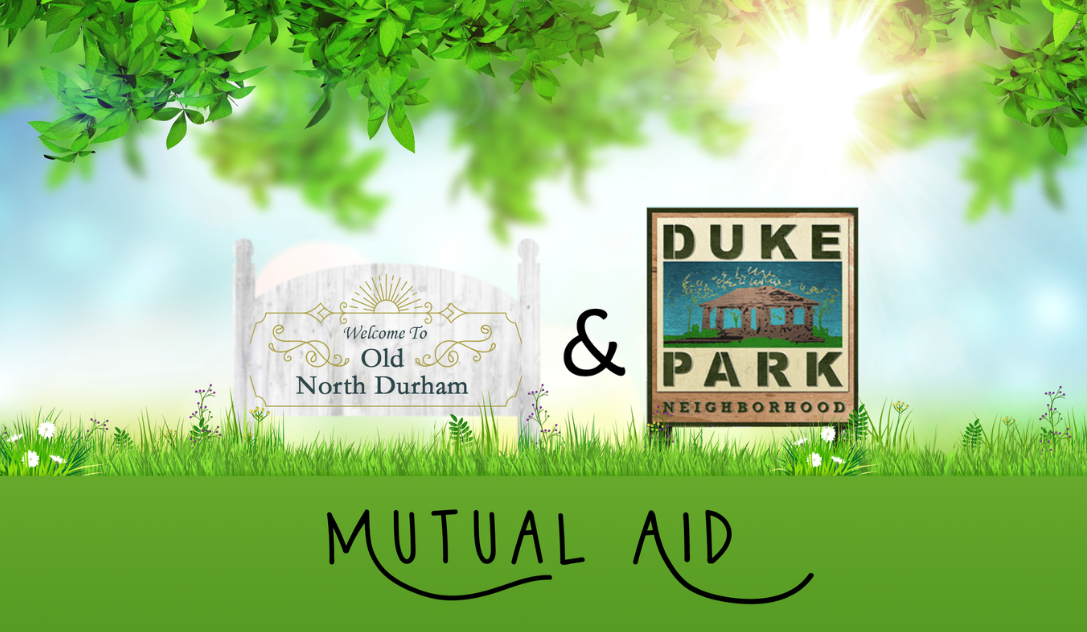OND and Duke Park Rent Relief
Mutual aid groups in Old North Durham and Duke Park are raising money to provide rent relief. Our goal is to provide households with $500 to go toward rent and utility payments.
Leader
Jane Tandler
Location
Roxboro St Durham, NC 27701
About the project
We’ve all been affected by the ongoing pandemic, but renters in our neighborhood will be hit the hardest as the virus and job losses continue. With the end of unemployment benefits and eviction moratoriums, more and more renters are likely to lose their homes at a time when having a place to shelter is a matter of life and death.
Mutual aid groups in Old North Durham and Duke Park are raising money to provide rent relief for households in our neighborhoods. Our goal is to raise $10,000 to provide 20 households with $500 to go toward rent and utility payments. The more we are able to raise, the more households we’ll be able to support.
Although we know $500 is not enough to cover a month’s rent, it could make a difference for renters on the margin. Because our process will be more nimble and less burdensome than others, we can get funds quickly into the hands who need them.
During this time of social distancing and isolation, we can still come together to support one another.
The Steps
By the end of September
- Collect funds from neighbors
- Follow up applicants about their needs.
By early October
- Redistribute funds to neighbors who request support
*Should requests exceed funds available, our mutual aid groups are committed to connecting applicants to other resources and efforts in the community
Why we‘re doing it
Why we’re doing it
Even before the pandemic, Durham was in an affordable housing crisis. Rising rents across the city have put undue pressure on low-income renters. Half of renters in Durham spend more than 30% of their income on rent. Durham has the highest rate of eviction filings among the state’s 10 largest counties. Filings for eviction in Durham County have already begun to increase with the end of the moratorium in July. The longer the pandemic lasts, the more housing insecurity there will be - especially among Black and Hispanic households who are more likely to rent and have been affected by COVID-related job loss at a higher rate.
Our government has been slow to act.
Although the CDC recently issued an eviction moratorium until the end of the year, it does not relieve renters of their financial obligations and therefore only postpones evictions. Meanwhile, lawmakers at the federal level can’t agree to another stimulus package to provide the long term financial assistance needed to keep renters stably housed and allow small landlords to pay their expenses. Governor Cooper recently announced $94 million for rent and utility payments to avoid evictions but applications are not yet open. And the City of Durham has yet to announce any plans to provide assistance. As we have seen with other rent relief funds across the country, any funding will run out quickly. Moreover, some people who need support will be left out including those who are undocumented or work in the cash economy.
Now more than ever, it’s become clear all we have is one another.
Mutual aid networks sprung up around the country when the pandemic first started and have provided support and resources these past six months. In Old North Durham and Duke Park, mutual aid groups have distributed over 500 reusable masks, redistributed stimulus checks to four undocumented families, raised over $4000 for low-income families at Durham Nativity School, bought groceries for elderly and immunocompromised neighbors, and provided other kinds of support. The rent relief fund is the latest project in an ongoing effort to come together and meet each other’s needs.

